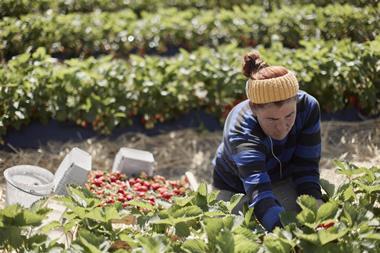A project backed by the government will look at the barriers to small-scale fruit and vegetable producers in Africa wishing to exploit opportunities in Europe.
The project researchers want input via the Fresh Produce Consortium from companies throughout the supply chain - including retailers, wholesalers, foodservice supply companies and importers.
The programme will focus on the export horticultural crop sector from sub-Saharan Africa.
The government sees securing and strengthening export market opportunities for developing countries as a priority for the UK G8 presidency.
Douglas Pattie, technical adviser to the FPC, said: "Consumers' demand for quality food from all over the world, produced according to high ethical, environmental and safety standards, at an affordable price and in all seasons, opens up new market opportunities for agricultural producers in developing countries." However, there are concerns that the way supply chains are managed - with their rationalisation, standards and certification - represent a barrier.
"There is evidence that small-scale producers not supplying large retailer supply chains continue to sell their produce into Europe through other supply chains, such as wholesale markets," said Pattie. "But those small-scale producers included in large retailer supply chains face persistent pressure from high private sector standards.
"In the EU a growing convergence of private and public standards will bring major changes affecting access for producers in developing countries."
The UK Department for International Development is running the programme with the International Institute for Environment and Development and the Natural Resources Institute.
They will look at the costs and benefits of compliance with standards such as EurepGAP, to assist producers to reach the most beneficial entry points.
The project researchers want input via the Fresh Produce Consortium from companies throughout the supply chain - including retailers, wholesalers, foodservice supply companies and importers.
The programme will focus on the export horticultural crop sector from sub-Saharan Africa.
The government sees securing and strengthening export market opportunities for developing countries as a priority for the UK G8 presidency.
Douglas Pattie, technical adviser to the FPC, said: "Consumers' demand for quality food from all over the world, produced according to high ethical, environmental and safety standards, at an affordable price and in all seasons, opens up new market opportunities for agricultural producers in developing countries." However, there are concerns that the way supply chains are managed - with their rationalisation, standards and certification - represent a barrier.
"There is evidence that small-scale producers not supplying large retailer supply chains continue to sell their produce into Europe through other supply chains, such as wholesale markets," said Pattie. "But those small-scale producers included in large retailer supply chains face persistent pressure from high private sector standards.
"In the EU a growing convergence of private and public standards will bring major changes affecting access for producers in developing countries."
The UK Department for International Development is running the programme with the International Institute for Environment and Development and the Natural Resources Institute.
They will look at the costs and benefits of compliance with standards such as EurepGAP, to assist producers to reach the most beneficial entry points.

















No comments yet